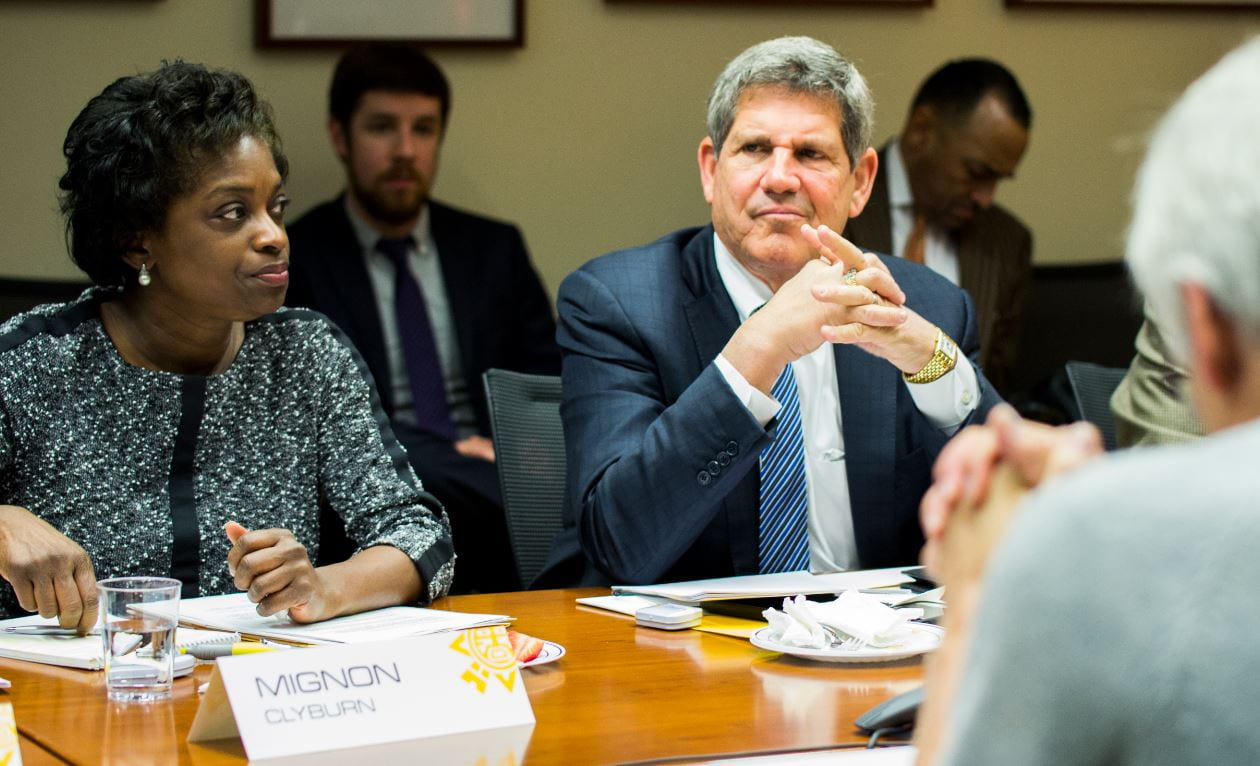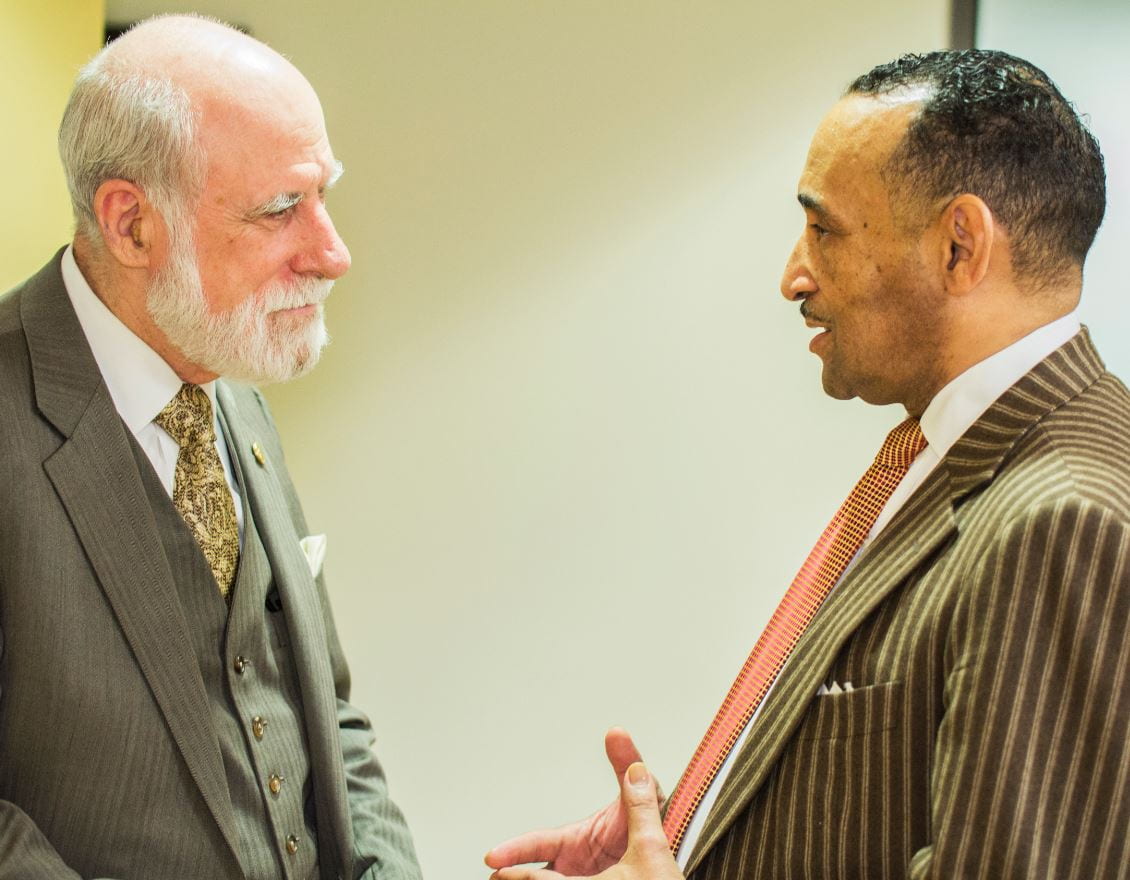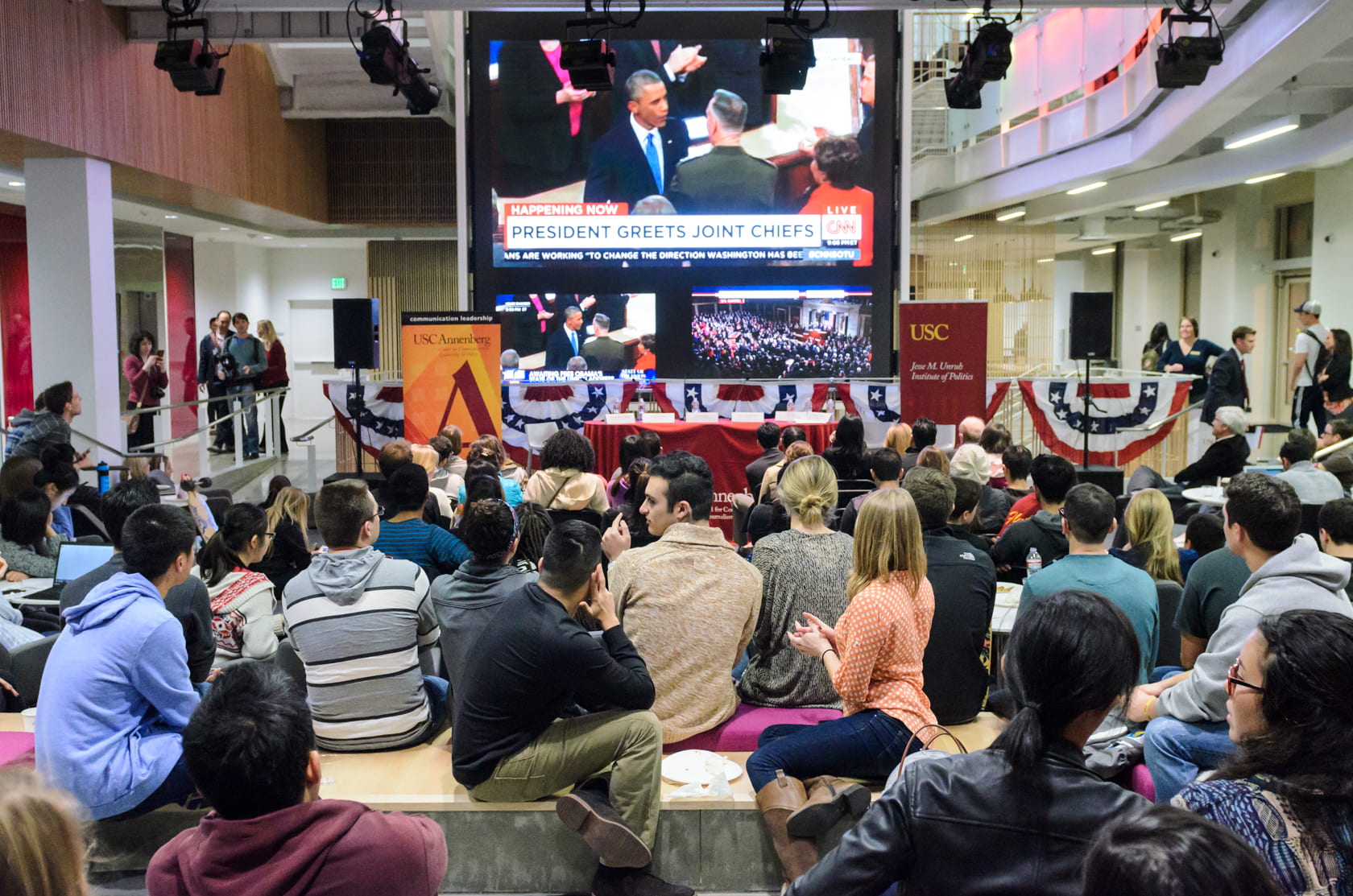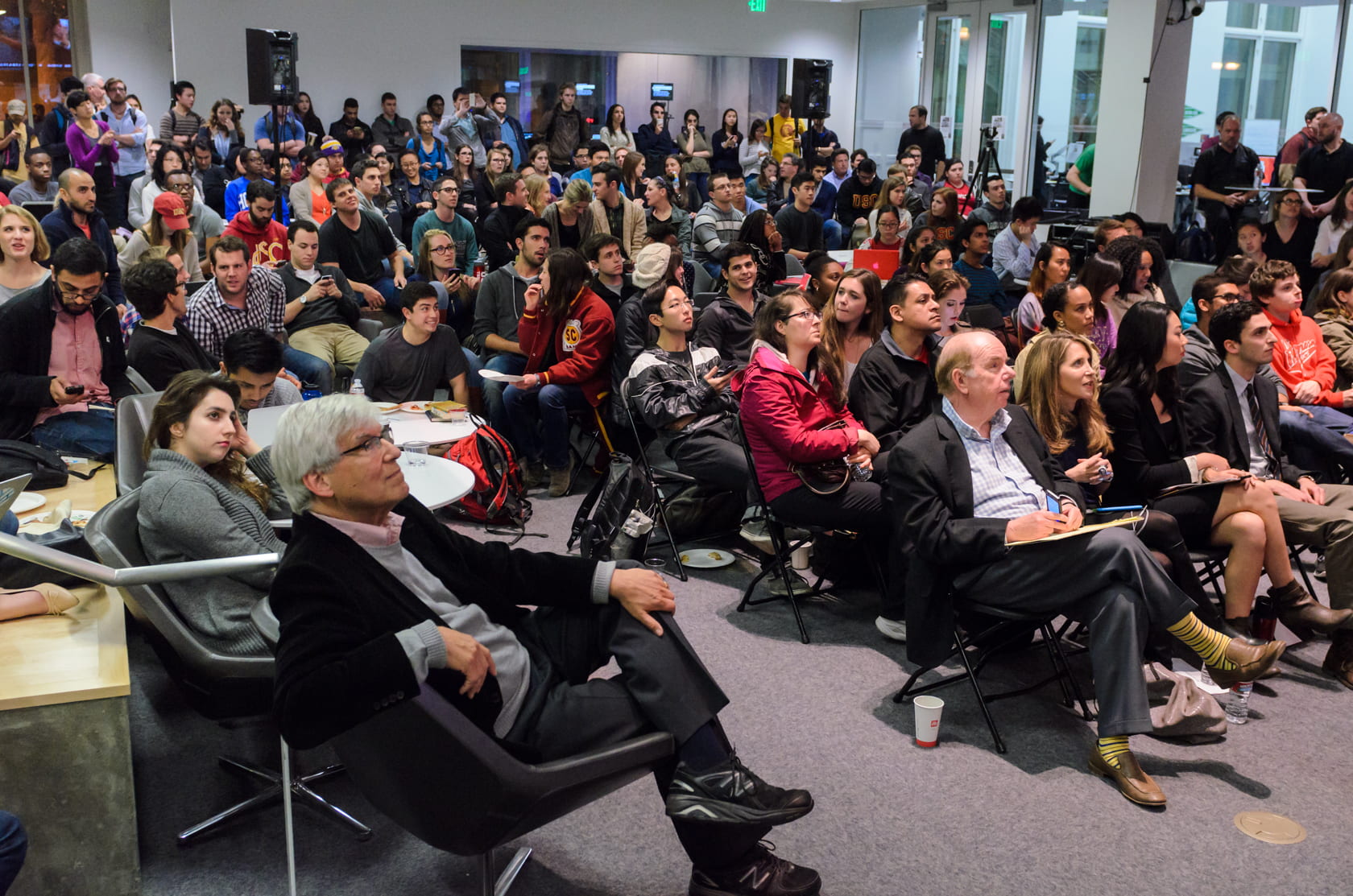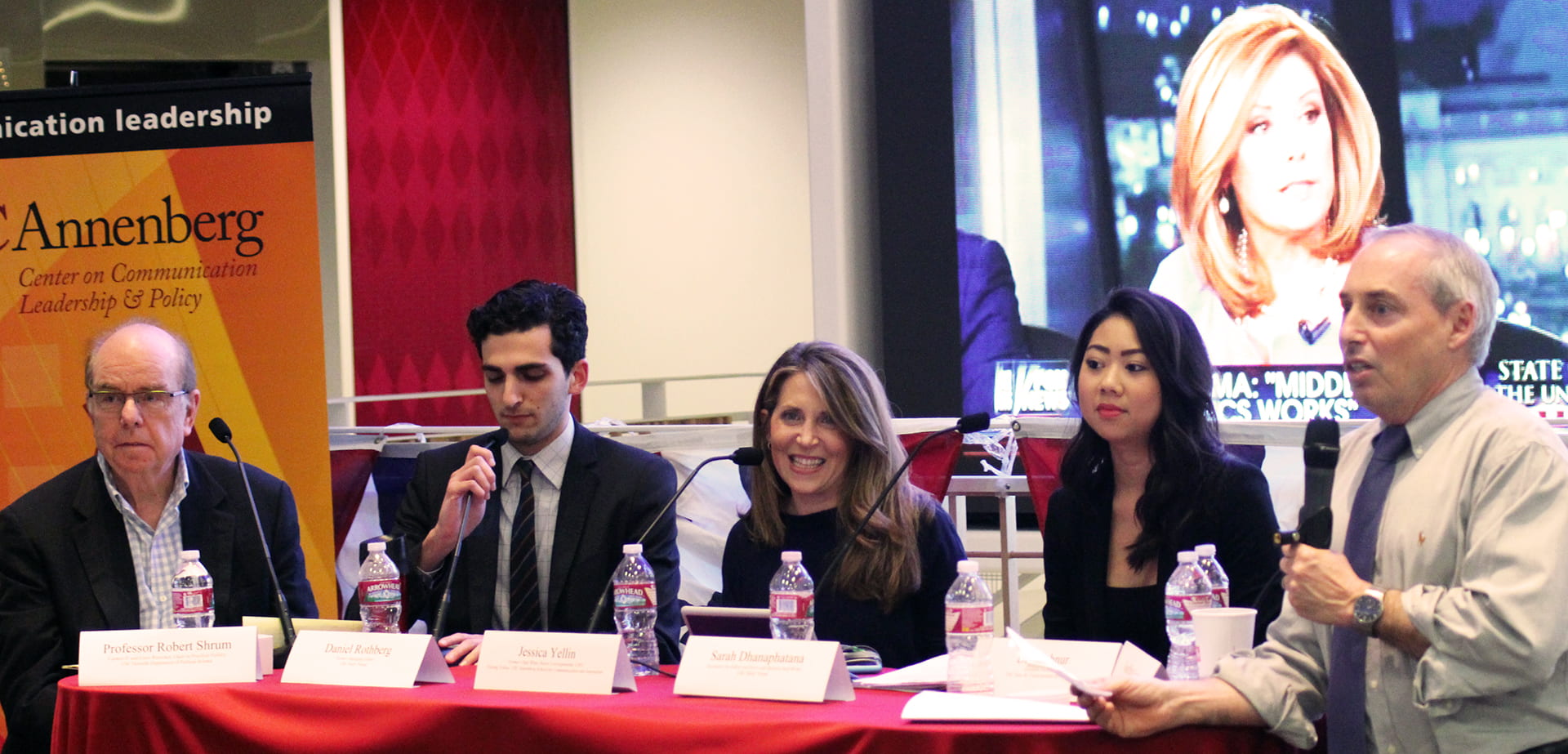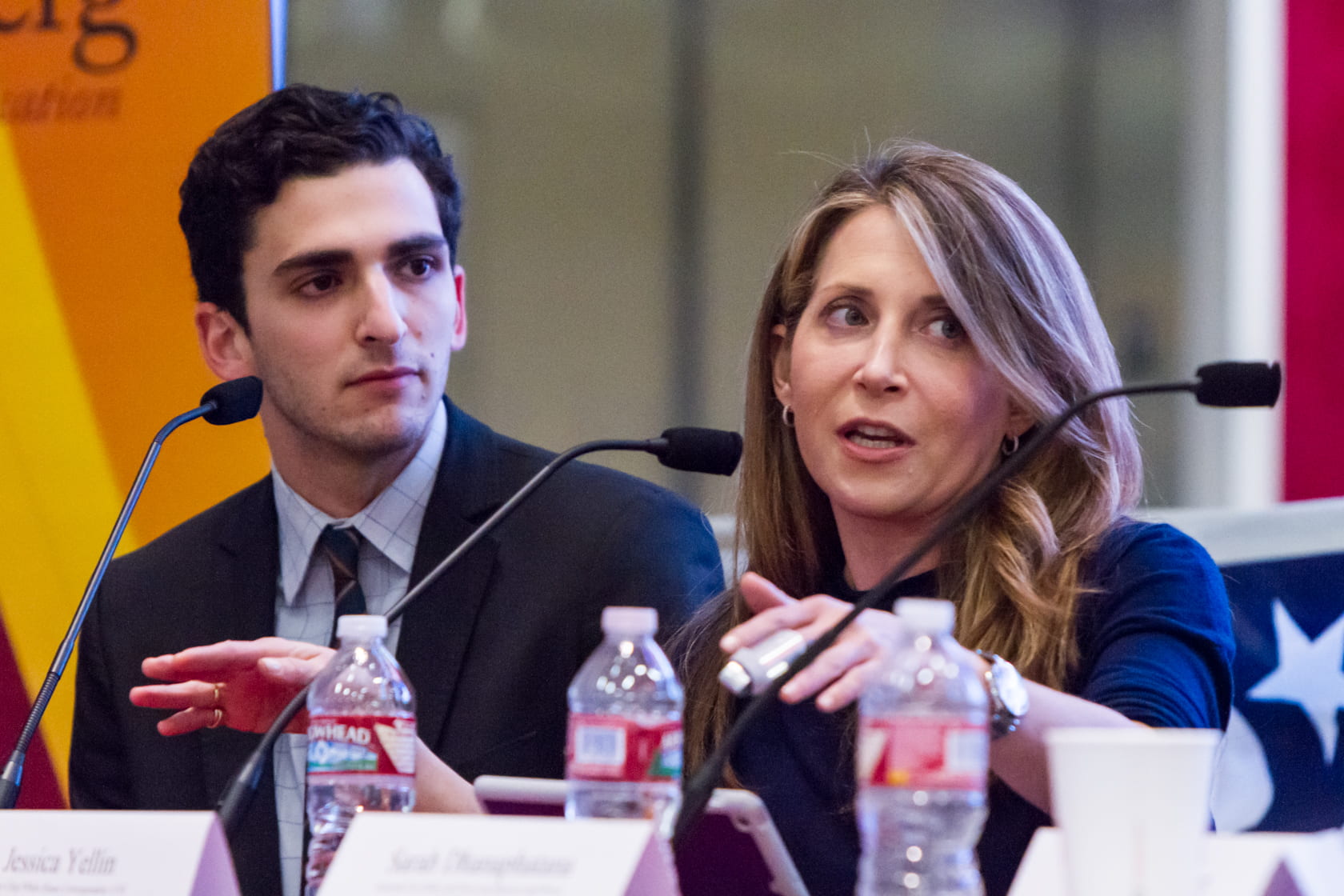Latonero speaks at AAAS conference on big data and human rights
On January 15 and 16, research director Mark Latonero spoke at the Science and Human Rights Coalition’s “Big Data and Human Rights” conference in Washington, D.C., sponsored by the American Association for the Advancement of Science (AAAS). Sessions explored how human rights can be affected by the collection and analysis of big data, the rapidly growing collections of information that can now be processed thanks to recent technological advances.
“The application of big data in the human rights domain is still really in its infancy,” said Latonero. “The positives and negatives are not always clear and often exist in tension with one another, particularly when involving vulnerable populations.”
Click here to watch a video of Mark Latonero’s presentation.
The event was divided into three plenaries. The first session began with a discussion of the latest trends in big data, led by Toni Carbo of the Association for Information Science and Technology (ASIS&T) and Kavita Berger and Theresa Harris of AAAS. Carbo said that “last year there were 4 zettabytes of data.” (One zettabyte is equivalent to one billion terabytes, with the number of bytes being written as a 4 followed by 21 zeroes.)
The second plenary examined how big data can be a threat to human rights. Jessica Wyndham of AAAS talked about the connections between science and human rights. In the final plenary, titled “Big Data in the Service of Human Rights: Opportunities and Responsibilities,” Latonero discussed how human rights principles can guide responsible data-mediated interventions in preventing human trafficking.
According to a post by Kathy Wren of AAAS, “Latonero showed how analyzing classified ads can reveal patterns suggesting organized child sex trafficking and even investigate particular individuals. Corporations such as Western Union, Google, and J.P. Morgan Chase are also analyzing data that can reveal financial transactions or other evidence of human trafficking. When this data is shared with human rights groups and researchers, it brings up yet-unanswered questions about who has a responsibility to act if a human rights abuse is uncovered, and who has the responsibility to report and monitor that situation, Latonero said.”
“The event was an important opportunity to explore big data and human rights from a scientific perspective,” said Latonero. “While there is existing research on big data and development, humanitarian and crises, this meeting was important for those of us focusing specifically on data and human rights.”
In 2014, Latonero was named to the inaugural class of fellows at the Data & Society Research Institute in New York, where he is studying the intersections between data, development, and human rights. At CCLP, Latonero spearheaded the Technology and Trafficking Initiative with groundbreaking research on technology’s dual role in facilitating and combating human trafficking.
This post was written by CCLP project fellow Justin Chapman and web & IT coordinator Liz Krane.
